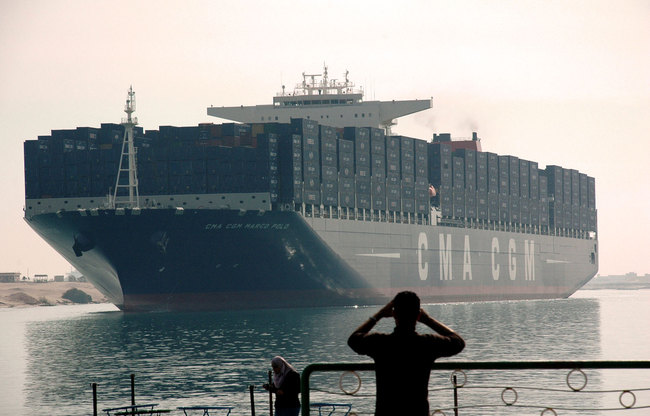Central Bank of Egypt (CBE) Governor Tarek Amer denied that Egypt is facing any difficulty paying the cost of imported petroleum products.
Amer said the CBE covers the state’s requirements of the strategic and basic commodities, including in the petroleum sector, and it paid $400m to import these commodities last Tuesday. The CBE makes a schedule for the dues that were accumulated in the last period and pays them.
Reuters said in a report Wednesday that Egypt is facing difficulty in paying the cost of its imported petroleum products, which are priced in dollars, and that it cancelled purchases and asked the providers to extend the payment deadlines of some imports.
These reports are “inaccurate” and everyone must pay attention to everything presented by foreign media institutions, Amer said during the CBE’s press conference Thursday. The conference was attended by a number of the CBE’s leaders including Deputy Governor Gamal Negm, both Sub-Governors Tarek El-Kholy and Tarek Fayed, and a number of other officials.
Amer said during the conference that Egypt suffered a foreign crisis exchange in the past and overcame it, and that it will overcome the present crisis as well.
He revealed that the CBE pumped $8.3bn from 29 October until 12 December to pay off importers’ debts and open letters of credit to import goods and release goods that were retained in customs. It also paid off the dues of the foreign investors in the stock market and the governmental securities.
This is in parallel with CBE’s commitment to maintain its foreign exchange reserve so that it covers the cost of Egypt’s imports for at least three months. Amer revealed that there is a strategic plan in agreement with the state to support local industry and production and to face unregulated imports.
The CBE works in cooperation with both ministries of Finance and Trade to regulate the import operations in the upcoming period. Amer holds two to three meetings weekly with the government, business organisations, the Federation of Egyptian Industries, and the Federation of Egyptian Chambers of Commerce to coordinate about the decisions he makes.
“The CBE will issue new supervisory decisions to banks in the upcoming days to encourage them to fund the small and medium projects (SMEs) to ensure that the banks play their role in funding this sector and consequently production will increase,” Amer said. The CBE targets to boost funding for SMEs to EGP 100bn in seven years.
“There is a new strategy under preparation to support the agriculture sector to cover Egypt’s needs of the agriculture products. It includes helping the farmers and restructuring the Principal Bank for Development and Agricultural Credit,” according to Amer.
Amer revealed that the CBE is also planning to launch several new products to increase the foreign exchange resources from Egyptians abroad and foreign investors.
The transfers of Egyptians working abroad are increasing and sometimes reach about $19bn.
Amer also said they excluded 18 banks from the periodic auctions the CBE puts up to sell dollars to the banks because they did not meet the previously-set requirements. He said the dollars granted to the banks through these auctions come from the revenues of the Suez Canal, and the CBE must ensure that they will be directed to serve the country.
The banks working in the foreign trade must meet the requirements for this business, mainly in maintaining relationships with correspondent banks abroad and helping to provide currency. That is in addition to having financial solvency and the ability to provide funds, as well as developing their ability to attract foreign currency.
As for the exchange firms, Amer said they are part of the banking system, and that new regulations will be introduced for their work in foreign currency, focusing on their trading volume.
The CBE does not penalise exchange firms unless it is proven that they committed violations with evidence through security reports.
As for increasing the dollar interest rate, Amer said it is a limited increase and will not have an effect locally, especially since the pound’s interest rate is still much higher than the dollar’s.


